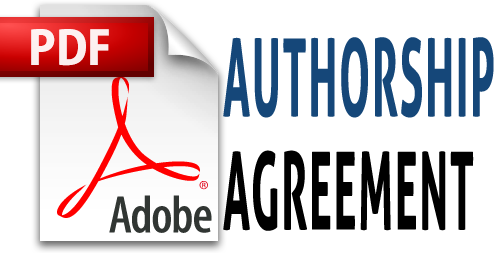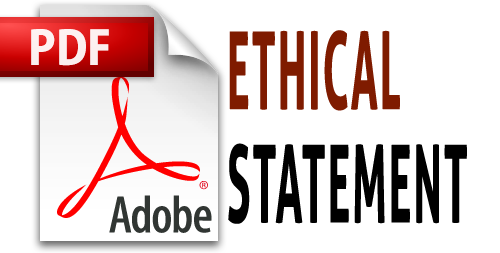PENGARUH DISCOVERY LEARNING BERBANTUAN E-LEARNING DALAM MENINGKATKAN PENGUASAAN KONSEP SISWA TENTANG KONSENTRASI LARUTAN DAN APLIKASINYA
 Zainul Mustofa(1*)
Zainul Mustofa(1*)
(1) SMK Al Munawwariyyah
(*) Corresponding Author
 Abstract viewed : 4449
|
Abstract viewed : 4449
|  PDF downloaded : 690
PDF downloaded : 690
Abstract
The main objective of this study was to determine the effect of discovery learning assisted e-learning in improving mastery of the concept of solution and solution concentration. The research subjects consisted of 19 dressmaking students, Al Munawwariyyah Vocational School, Bululawang, Malang. The results showed that discovery learning assisted e-learning can significantly improve student mastery of concepts with an N-gain average value of 0.63 (high medium) and an effect size value of 0,72 (high medium). Students' skills in applying the theory of solution and the concentration of a solution in the process of coloring cloth with a certain concentration increased. Through the activities of e-learning based discussion forums in the classroom, most students are interested in utilizing the fabric coloring theory in increasing fabric color variations to increase the attractiveness of the products produced.
Abstrak
Tujuan utama pada penelitian ini adalah untuk mengetahui pengaruh pembelajaran discovery learning berbantuan e-learning dalam meningkatkan penguasaan konsep larutan dan konsentrasi larutan. Subjek penelitian terdiri atas 19 siswa Tata Busana, SMK Al Munawwariyyah, Bululawang, Malang. Hasil penelitian menunjukkan bahwa pembelajaran discovery learning berbantuan e-learning dapat meningkatkan penguasaan konsep siswa secara signifikan dengan nilai N-gain rata-rata sebesar 0,63 (medium tinggi) dan effect size sebesar 0,72 (medium tinggi). Keterampilan siswa dalam mengaplikasikan teori larutan dan konsentrasi larutan pada proses pewarnaan kain dengan konsentrasi tertentu meningkat. Melalui kegiatan forum diskusi berbasis E-learning di kelas, sebagian besar siswa tertarik untuk memanfaatkan teori pewarnaan kain dalam meningkatkan variasi warna kain agar meningkatkan daya tarik produk yang dihasilkan.
Keywords
References
Ardianto, D., & Rubini, B. 2016. Comparison of Students' Scientific Literacy in Integrated Science Learning through Model of Guided Discovery and Problem Based Learning. Jurnal Pendidikan IPA Indonesia 5 (1), 31-37.
Arham, U. U., & Dwiningsih, K. 2016. Keefektifan Multimedia Interaktif Berbasis Blended Learning Untuk Meningkatkan Hasil Belajar Siswa. Kwangsan : Jurnal Teknologi Pendidikan, 4(2), 111. https://doi.org/10.31800/jtp.kw.v4n2.p111--118
Arends, R. 2012. Learning to teach (9th ed). Dubuque, Iowa: McGraw-Hill.
Bakri, F., Fajriani, F., & Muliyati, D. 2017. Media E-learning Berbasis CMS JOOMLA: Pelengkap Pembelajaran Fisika SMA. TEKNODIK 21 (2), 99-110.
Balim, A. G. 2009. The Effects of Discovery Learning on Students' Success and Inquiry Learning Skills. Eurasian Journal of Educational Research, Issue 35, 1-20.
Clark, R. C., & Mayer, R. E. 2011. E-learning and the science of instruction: proven guidelines for consumers and designer of multimedia learning. USA: John Wiley & Sons.
Darmawan, D., & Bariyah, S. H. 2014. Pengembangan E-learning Berbasis Moodle dan Facebook Pada Mata Pelajaran TIK. Jurnal TEKNODIK 18 (3), 227-240.
Gall, M. D., Gall, J. P., & Borg, W. R. 2003. Educational Research: An Introduction 7th. United States: Pearson Education, Inc.
Indonesia, M. T. 2008. Keputusan Nomor: Kep. 91/MEN/IV/2008 Tentang SKKNI bidang Menjahit Pakaian. Jakarta: Menteri Tenaga Kerja dan Transmigrasi Republik Indonesia.
Menengah, D. P. 2018. Peraturan Direktur Jenderal Pendidikan Dasar dan Menengah Kemdikbud No: 07/D.D5/KK/2018. Jakarta: Kementerian Pendidikan dan Kebudayaan.
Morgan, G. A., Leech, N. L., Gloeckner, G. W., & Barrett, K. C. 2004. SPSS for Introductory Statistics: Use and Interpretation (Second Edition). New Jersey: Lawrence Erlbaum Associates.
Mustofa, Z. 2018. Pengaruh Multimedia Interaktif dalam Pembelajaran Remedial Untuk Meningkatkan Prestasi Belajar Fisika. Teknodik 22 (2), 121-132. DOI: http://doi.org/10.32550/teknodik.v0i0.329
Prasetyo, H., & Sutopo, W. 2018. Industri 4.0: Telaah Klasifikasi Aspek dan Arah Perkembangan Riset. Jurnal Teknik Industri 13 (1), 17-26.
Slavin, R. E. 2006. Educational Psychology: theory and practice (8th ed). Boston: Pearson/Allyn & Bacon.
Suphi, N., & Yaratan, H. 2016. Effects of Discovery Learning and Student Assessment on Academic Success. TOJET: The Turkish Online Journal of Educational Technology, 829 - 835.
Vaughan, N. D., Cleveland-Innes, M., & Garrison, D. R. (2013). Teaching In Blended Learning Environments: Creating and Sustaining Communities of Inquiry. Canada: AU Press.
Wenning, C. J. 2011. The Levels of Inquiry Model of Science Teaching. J. Phys. Tchr. Educ. Online 6 (2), 9-16.
Refbacks
- There are currently no refbacks.
Copyright (c) 2019 Zainul Mustofa

This work is licensed under a Creative Commons Attribution-NonCommercial 4.0 International License.
Kwangsan Indexed By
Kwangsan: Jurnal Teknologi Pendidikan diterbitkan oleh Balai Besar Guru Penggerak (BBGP) Prov. Jawa Timur.
Kementerian Pendidikan dan Kebudayaan
Alamat Redaksi:
Jl. Mangkurejo, Ds. Kwangsan, Sedati - Sidoarjo.
Telp 0318911373 Fax. 0318911392
Email: jurnal.kwangsan@kemdikbud.go.id & jurnalkwangsan@dikbud.belajar.id






























